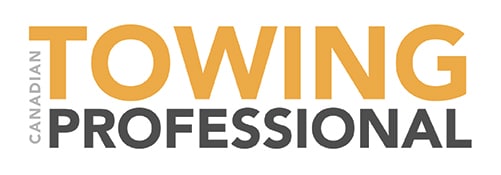- New Group structure established: First Annual Meeting of Mercedes-Benz Group AG
- Performance raised: Successful 2021 and strong Q1, 2022 results despite volatile environment
- EV strategy accelerated: Portfolio to include more than 10 fully electric vehicles in 2022
- Milestone achieved: Vision EQXX sets benchmark with >1,000 kilometres range
- Supervisory Board expertise broadened: Candidates specialised in ESG and luxury proposed
- Dividend increased: Dividend of €5.00 proposed, €4.30 new reference point for dividend payments
STUTTGART, Germany–(BUSINESS WIRE)–At its first Annual Meeting under a new corporate structure as Mercedes-Benz Group AG (stock exchange code: MBG), the brand with the three-pointed star reasserted its claim to leadership in the automotive luxury segment. In addition to accelerating electrification and digitalization, the company’s transformation continues with a relentless focus on improving financial robustness.
Strong results in the financial year 2021 and a successful start to 2022 affirm the company’s strategic path, even in a volatile environment. “Last year Mercedes-Benz made good progress: We were able to sell not only more electric vehicles, but also more top models: And this, despite the ongoing pandemic and the supply bottlenecks for semiconductors. Thus, we have come a step closer to our goal of becoming fully electric and offering the most desirable vehicles,” Bernd Pischetsrieder, Chairman of the Supervisory Board of Mercedes-Benz Group AG said on Friday at the virtual Annual Meeting.
Successful 2021
Focusing on electric vehicles and growing the top-end segment at Mercedes-Benz has paid off. Four figures illustrate this transformation: Group sales of the top-end models increased by 30%, sales of electric passenger cars increased by 64%, sales of electric Vans 118% and adjusted EBIT of the Mercedes-Benz Group grew by 123%. In addition, business resilience was further enhanced. Despite the ongoing pandemic and supply bottlenecks, the financial year 2021 at Mercedes-Benz Cars, Mercedes-Benz Vans and Mercedes-Benz Mobility was successful.
The Chairman of the Board of Management of Mercedes-Benz Group AG, Ola Källenius, said: “At Mercedes-Benz, we redoubled our efforts to implement our strategy and succeeded in translating this into fascinating products and financial success. I want to extend my gratitude to our colleagues for this achievement. Last year was a challenge, but our team rose to the occasion. We developed momentum and we still have plenty of potential. For Mercedes-Benz, the journey has just begun.”
|
Mercedes-Benz Group |
FY 2021 |
FY 2020 |
Change 21/20 |
|
Revenue1 |
167,971 |
154,309 |
+9% |
|
EBIT1 |
29,069 |
6,603 |
+340% |
|
EBIT adjusted1 |
19,230 |
8,641 |
+123% |
|
Net profit/loss1 |
23,3962 |
4,009 |
+484% |
|
Net liquidity (industrial business, December, 31) 1 |
21,005 |
17,855 |
+18% |
|
Free cash flow (industrial business) 1, 4 |
8,606 |
8,259 |
+4% |
|
Free cash flow (industrial business) adjusted1, 5 |
10,882 |
9,155 |
+19% |
|
Earnings per share (EPS) in € |
21.503 |
3.39 |
+534% |
|
1in € millions 2 Excluding the result from the deconsolidation of the Daimler commercial vehicle business, net profit amounted to €14,180 million. 3 Excluding the result from the deconsolidation of the Daimler commercial vehicle business, EPS amounted to €12.89. 4 Including former Daimler Trucks & Buses division. 5 Including former Daimler Trucks & Buses division. The free cash flow of the former Daimler Trucks & Buses division for 2021 amounted to €726 million until the spin-off and hive down went into effect on 9 December 2021. |
|||
The Board of Management and the Supervisory Board propose a dividend of €5.00 for the financial year 2021 (2020: €1.35) per share. Around €0.70 of the dividend is attributable to Daimler Trucks & Buses, as Daimler Truck Holding AG will not pay a separate dividend to shareholders for 2021. A dividend of €4.30 is the future reference value for the Mercedes-Benz Group. The total payout for 2021 is therefore €5.35 bn. (2020: €1.4 bn.).
Looking ahead for 2022
This year the company expects to make further progress toward its long-term strategic goal of CO2 neutrality. With the EQS SUV, EQE SUV, EQT and eCitan models more than 10 fully electric vehicles will have been presented by the end of 2022. Moreover, with the Ambition2039, Mercedes-Benz Cars has set itself the target of reaching an important milestone as early as 2030 on the road to CO2 neutrality: to halve CO2 emissions compared with 2020 levels. Here, the most important levers are electrifying the vehicle fleet, charging with green power, improving battery technology and by extensively using recycled materials and renewable energy in production sites. Potential CO2 emissions are also evaluated as a criterion when contracts are awarded to potential suppliers.
Mercedes-Benz plans to cover more than 70% of its energy requirements in production with renewable energy sources by 2030. The company aims to reach this goal by expanding solar and wind power at its own sites and by means of additional power purchase agreements. As part of its holistic approach to sustainability, Mercedes-Benz is also building a battery recycling plant in Kuppenheim, Germany.
“Mercedes-Benz is going fully electric step by step, and its software capability is growing ever stronger. We are expanding our luxury business and continuing to work on our cost efficiency. We are compelled to do this, not least in view of rising raw material prices. In Europe, we need an active raw material strategy because access to raw materials is crucial for electric and digital transformation, and for the competitiveness of the European economy as a whole,” said Ola Källenius, Chairman of the Board of Management of Mercedes-Benz Group AG.
Elections to the Supervisory Board
Bader M. Al Saad and Dr. Clemens Börsig will leave the Supervisory Board at the end of the Annual Meeting. Dame Polly Courtice, the former Director of the University of Cambridge Institute for Sustainability Leadership and Marco Gobbetti, CEO of Salvatore Ferragamo S.p.A., have been proposed for election. Thanks to their experience and perspectives in Environmental Social and Governance (ESG) matters and in the luxury goods industry, competence in strategic core areas will be further broadened on the Supervisory Board. According to Bernd Pischetsrieder, Chairman of the Supervisory Board: “The strategic realignment of Mercedes-Benz is based on the conviction that sustainability forms the basis for a successful luxury strategy. Mercedes-Benz is striving for a leading position in both areas. With their wealth of experience and broad knowledge, Dame Polly Courtice and Marco Gobbetti are ideally placed to support us in this endeavor.”
Since the Extraordinary General Meeting on October 1st 2021, there has been a further change: Dr. Sabine Zimmer stepped down from the Supervisory Board as the Employee Representative as of December 8th 2021. Her successor as Employee Representative is Monika Tielsch, Member of the Works Council at the Mercedes-Benz Sindelfingen plant, as of December 9th 2021.
Link to the current annual report: group.mercedes-benz.com/Results-2021
Forward-looking statements:
This document contains forward-looking statements that reflect our current views about future events. The words “anticipate,” “assume,” “believe,” “estimate,” “expect,” “intend,” “may,” ”can,” “could,” “plan,” “project,” “should” and similar expressions are used to identify forward-looking statements. These statements are subject to many risks and uncertainties, including an adverse development of global economic conditions, in particular a decline of demand in our most important markets; a deterioration of our refinancing possibilities on the credit and financial markets; events of force majeure including natural disasters, pandemics, acts of terrorism, political unrest, armed conflicts, industrial accidents and their effects on our sales, purchasing, production or financial services activities; changes in currency exchange rates, customs and foreign trade provisions; a shift in consumer preferences towards smaller, lower-margin vehicles; a possible lack of acceptance of our products or services which limits our ability to achieve prices and adequately utilize our production capacities; price increases for fuel or raw materials; disruption of production due to shortages of materials, labour strikes or supplier insolvencies; a decline in resale prices of used vehicles; the effective implementation of cost-reduction and efficiency-optimization measures; the business outlook for companies in which we hold a significant equity interest; the successful implementation of strategic cooperations and joint ventures; changes in laws, regulations and government policies, particularly those relating to vehicle emissions, fuel economy and safety; the resolution of pending governmental investigations or of investigations requested by governments and the outcome of pending or threatened future legal proceedings; and other risks and uncertainties, some of which are described under the heading “Risk and Opportunity Report” in the current Annual Report or in the current Interim Report. If any of these risks and uncertainties materializes or if the assumptions underlying any of our forward-looking statements prove to be incorrect, the actual results may be materially different from those we express or imply by such statements. We do not intend or assume any obligation to update these forward-looking statements since they are based solely on the circumstances at the date of publication.
Mercedes-Benz Group at a glance
Mercedes-Benz Group AG is one of the world’s most successful automotive companies. With Mercedes-Benz AG, the Group is one of the leading global suppliers of premium and luxury cars and vans. Mercedes-Benz Mobility AG offers financing, leasing, car subscription and car rental, fleet management, digital services for charging and payment, insurance brokerage, as well as innovative mobility services. The company founders, Gottlieb Daimler and Carl Benz, made history by inventing the automobile in 1886. As a pioneer of automotive engineering, Mercedes-Benz sees shaping the future of mobility in a safe and sustainable way as both a motivation and obligation. The company’s focus therefore remains on innovative and green technologies as well as on safe and superior vehicles that both captivate and inspire. Mercedes-Benz continues to invest systematically in the development of efficient powertrains and sets the course for an all-electric future: The brand with the three-pointed star pursues the goal to go all-electric, where market conditions allow. Shifting from electric-first to electric-only, the world’s pre-eminent luxury car company is accelerating toward an emissions-free and software-driven future. The company’s efforts are also focused on the intelligent connectivity of its vehicles, autonomous driving and new mobility concepts as Mercedes-Benz regards it as its aspiration and obligation to live up to its responsibility to society and the environment. Mercedes-Benz sells its vehicles and services in nearly every country of the world and has production facilities in Europe, North and Latin America, Asia and Africa. In addition to Mercedes-Benz, the world’s most valuable luxury automotive brand (source: Interbrand study, 20 Oct. 2021), Mercedes-AMG, Mercedes-Maybach, Mercedes-EQ and Mercedes me as well as the brands of Mercedes-Benz Mobility: Mercedes-Benz Bank, Mercedes-Benz Financial Services and Athlon. The company is listed on the Frankfurt and Stuttgart stock exchanges (ticker symbol MBG). In 2021, the Group had a workforce of around 172,000 and sold 2.3 million vehicles. Group revenues amounted to €168.0 billion and Group EBIT to €29.1 billion.
Contacts
Tobias Just, +49 160 868 7568, tobias.just@mercedes-benz.com
Edward Taylor, +49 176 30 94 1776, edward.taylor@mercedes-benz.com
Andrea Berg, +1 917 667 2391, andrea.a.berg@mercedes-benz.com
Han Tjan, +1 212 909 9063, han.tjan@mercedes-benz.com





















